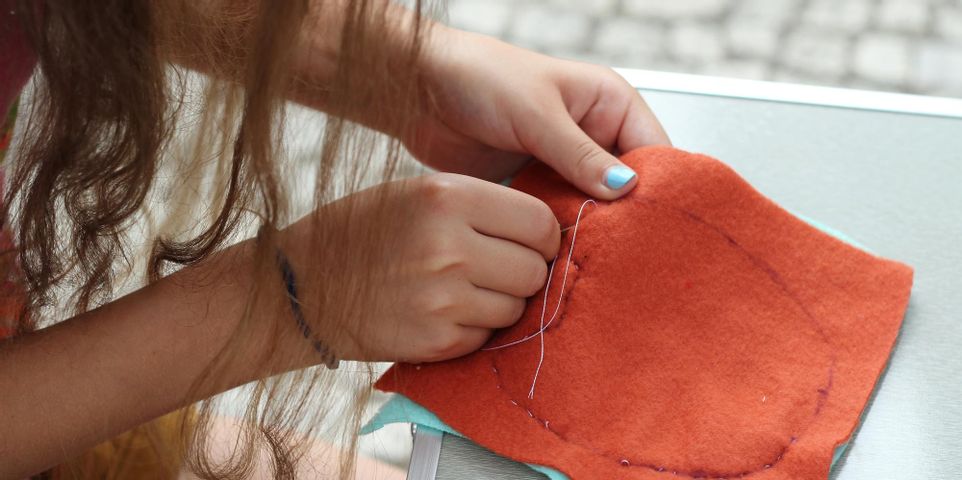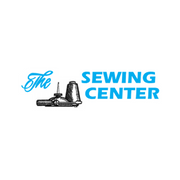
Having an awareness of basic sewing skills can benefit everyone. Making repairs to loose seams allows you to extend the life of your clothing, and altering ill-fitting garments will let you wear items you buy from the thrift store. It’s also important for people who want to develop their skills further to create their own clothing or make gifts for others by hand. Before learning these basic stitches, make sure you have needles, thread, scissors, and a thimble.
What Basic Sewing Stitches Should You Know?
1. Cross Stitch
Cross stitches are useful for creating hems in clothing, such as on the bottom of pants or skirts. It looks quite elaborate and is often used as a decorative edge.
Cross stitches form tiny X’s on the underside of the fabric, with small, tight stitches appearing on the outer side. For the best results, keep stitching loose and even.
2. Slip Stitch
 Also known as a ladder stitch, slip stitches are another option for hemming garments. Make sure the fabric around the seam is evenly folded into the closure. You may even iron the fabric to ensure the fold is uniform.
Also known as a ladder stitch, slip stitches are another option for hemming garments. Make sure the fabric around the seam is evenly folded into the closure. You may even iron the fabric to ensure the fold is uniform.
Insert the needle into one of the folds and bring it out about ¼ inches from where it was inserted. Continue the process along the seam, connecting both sides of the fabric on the inside edge. This stitch is perfect if you want to fix a garment without having any visible thread.
3. Running Stitch
A running stitch can be straight or curved, depending on what you're mending. As the most basic stitch, it’s what most people imagine when they think of sewing by hand.
Start by inserting your threaded needle on the underside of the fabric. Move down the material a short distance and insert your needle into the overside. Repeat the process down the fabric, making sure you're inserting the needle at an equal distance with each stitch.
Whether you need sewing supplies or have questions about a project, The Sewing Center can help. Located in Kalispell, MT, this store has supported crafters of all skill levels for the past three decades. They provide essential supplies like needles and thread, as well as machines and replacement parts. They also offer lessons so you can increase your knowledge base with the help of talented instructors. Call (406) 752-7058 to learn more. See the complete listing of services online.
About the Business
Have a question? Ask the experts!
Send your question

